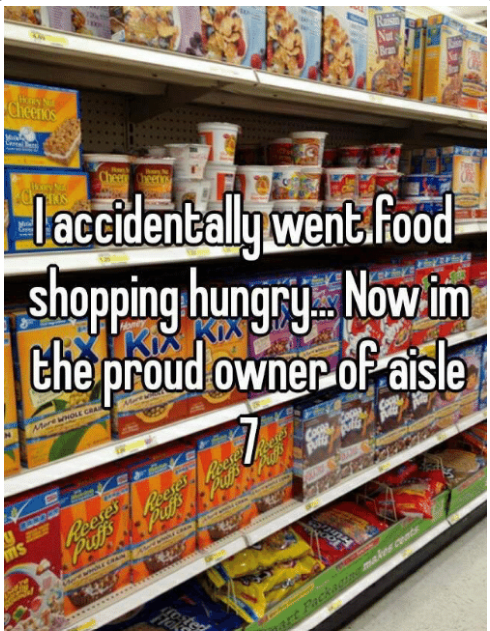Monitor: Natural products consumers identify with multiple diet tribes
If there's no one-size-fits-all diet, it may be because many consumers say they identify with more than one. This could provide brands with multiple points of entry for messaging and product development.

Natural Products Industry Health Monitor, Jan. 15, 2020
A global lockdown might make weeks feel like months and months weigh like centuries, but business allows little room for ennui. As distracting as the daily inundation of the negative can be, the time to look forward is always now. In this feature, Informa Health and Nutrition sister properties provide that right-now-right-here update. Look for the Industry Health Monitor every other Friday to learn the major news that is affecting the natural products market immediately and the less obvious insights that could dictate where the market may struggle or thrive in the months to come.
Consider this: Many diets to choose from means many consumers choose many diets
The road to hell may be paved with good intentions, but the road to weight loss seems to be paved with many intentions. A large number of shoppers in both the natural and conventional grocery channels claim some allegiance to an astonishing number of diets, according to a new survey from New Hope Network conducted Feb. 8, 2021, on a convenience sample of 1,000 consumers directionally representative of the U.S. adult population.
This suggests that few consumers adhere to a single lifestyle strategy when it comes to healthy eating and weight loss. And during a pandemic that caused sales of Peloton bikes to skyrocket and countless laments of “the COVID 10,” a significant number of respondents indicated they are doing more to follow those diets more faithfully than they did a year ago.
But what should be most important to the natural products industry is that shoppers in the natural channel were far more likely to say they are more interested and intentional, no matter what the diet. For every single diet mentioned in the survey (a total of 20 diets with the top 10 reflected in the charts), the number of consumers identified as natural-channel shoppers outweighed conventional-channel shoppers by a large percentage. The largest percentage in both groups may have chosen “high protein” as a diet they identified with, but the number of natural-channel shoppers claiming adherence was 44%, compared to 27% of conventional-channel shoppers.
For several diets the difference was dramatic. With regard to “flexitarian,” 43% of natural-channel shoppers indicated it was a diet habit they identify with, compared to 13% for conventional-channel shoppers. And for "whole food," the numbers were 41% for natural-channel shoppers to 14% for conventional-channel shoppers.
That natural-channel shoppers would be more intentional in their food choices should surprise no one. What may be most actionable for brands and retailers in the natural space is the large number of consumers who claim allegiance to multiple diets. That openness to identify with multiple diets could provide multiple entry points for consumer engagement. These consumers, who are both more interested and more likely to identify with multiple diets, appear less likely to stay put in a particular culinary camp. They may also be more willing to listen to multiple messages from multiple sources of influence.
But brands in the natural space also need to look at the survey results through a sobering lens. At Natural Products Expo and other industry events it is not uncommon to hear proclamations that “we are the mainstream,” as if the principles of the natural products movement have been adopted across all consumer segments.
This survey, and how far behind natural-channel shoppers the conventional shoppers lag in so many of the diet options, suggests there is a lot of work left to do. This survey tells us that the conventional shoppers and the natural shoppers still occupy very different mindsets when it comes to food. Three times as many natural shoppers identify with “vegetarian.” Just 3% of conventional shoppers identify with “locavore,” while eight times as many natural-channel shoppers make that claim.
But for both natural and conventional brands and retailers, at least one change in habits revealed in the survey deserves attention. Among natural-channel shoppers, 41% said they were eating less sugar. While the number for conventional shoppers was lower, 21%, that was the second highest percentage for that cohort. The biggest area of change for conventional shoppers was "high protein" with 23% claiming they were are doing more to stick that idea.
Every consumer walks into the grocery store with ideas about what they should be eating. That the natural shopper is more likely to be interested and intentional means there is more value in more marketing to match more diets. But in the conventional space, there are still significant points of interest around diet that echo principles of health and production that are inherent to the natural product industry.
It may be those points of interest that nudge the conventional-channel consumer closer to the habits and values of the natural-channel consumer.
It may be diet and weight loss that finally moves “we are the mainstream” closer to reality.
Know this: Interest in better-for-you products remains steady for consumers and investors
Consumer behavior indexes measure dramatic shifts in consumer behaviors as we march through COVID that is compared to a 2017 “normal” benchmark before COVID-19 emerged. These indexes are assessed through monthly surveys of how consumers perceive their shopping behaviors.
The natural products industry investment index measures dramatic shifts in investment activity as we march through COVID-19 that is compared to a 2019 “normal” benchmark before COVID-19 emerged. Nutrition Capital Network monitors monthly financial activity in the natural products industry.
Enjoy this: Put willpower on the shopping list—and underline it
The grocery store presents a greater abundance of choice than humans have ever known. Don't blame yourself, just wear blinders.

About the Author(s)
You May Also Like




